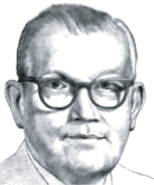
 |
 |
COHEN: “How so? The reporting I saw was typical of what one would expect for a deceased head of state. Besides, Mandela had a long history as a champion of peace and humanity so how do you come up with hypocrisy?”
CLAY: “Essentially, Mandela didn’t do anything to justify the adulation. He was a decent, compassionate man who made his reputation as a prisoner for 27 years, mostly on Robben Island. When he emerged like some political butterfly in 1990, he was a fully formed paragon of anti-Apartheid virtue and impervious to criticism or rational analysis. As reporter Steve Weissman noted, Mandela quickly snuggled up to big corporations and abandoned any notion of wealth redistribution for the black population:
“‘Chaps, we have to choose,’ said Nelson Mandela, returning home after a few days with the world’s movers and shakers at the 1992 World Economic Forum in Davos, Switzerland. ‘We either keep nationalization and get no investment, or we modify our own attitude and get investment.’”
COHEN: “You can’t blame him for protecting his country’s economic future, can you?”
CLAY: “Protecting or selling out? The price paid for the end of racial Apartheid, was a kind of “economic Apartheid” where the benefits of investment through the 1990s benefited white-collar sectors like telecommunications, real estate and finance, but not the impoverished labour-intensive sectors like textiles and mining, sectors with predominately poor black workers. Whether Mandela was an enthusiastic or a reluctant instrument of neo-liberal economic exploitation is matter for debate, but the fact remains he was an instrument of it and therefore should not have been venerated as a champion of black South Africa.”
ERIC BLAIR: (jumping in) “I see a curious contrast between Mandela and JFK.”
COHEN: “Contrast?!”
BLAIR: “Mandela’s death received disproportionate attention, as Romana said, but the 50th anniversary of JFK’s assassination passed with relative disregard. The contrast is startling because Kennedy was a genuine hero of humanity. Kennedy wanted to end the military-industrial state; he wanted genuine peace with the Soviet Union; and he wanted to help the American public. He was killed because he fought for what he believed. Mandela thrived because he compromised his principles for economic expediency. Thus, we see his face reverentially decorating newspapers and magazine covers and even movies—fitting really, because these are what created the Mandela myth.”
 |
COHEN: “That’s what happens when the myth becomes bigger than the man—it becomes everyone’s property. Anyway, thank you for that neat segue, Joseph, because my next question concerns Canada. What was the biggest story for you, Eric?”
 |
COHEN: “I suppose you're referring primarily to the Duffy scandal.”
BLAIR: “Duffy for starters! Just for his role in the bribery of Sen. Duffy and meddling in an audit of Senate finances, Harper could be charged with a felony under the Criminal Code’s section on Corruption and Disobedience. In addition, he lied twice to Parliament about Duffy. What astounds me, and I suspect most Canadians, is how Harper has managed to stay in power. Not even Richard Nixon was so lucky.”
HOWE: “I think a big part of the problem isn’t so much Harper as the Opposition.”
COHEN: “You mean NDP leader Thomas Mulcair? He’s had great success pounding Harper in Question Period.”
HOWE: “Mulcair gives the illusion of standing up for Canada, but all he’s really doing is posturing and preening for the next election. He did a great job lambasting Harper for misconduct, but it was part of Canada’s political theatre of the absurd since the House of Commons has been rendered impotent. If Mulcair were willing to put the good of the country ahead of the NDP’s electoral fortunes, he would have by now demanded the governor general dismiss the Harper government.”
CLAY: “Yes, I saw an on-line petition to that effect, but the governor general looks to be in a conflict of interest because he was nominated by Harper for the position and he did Harper a personal service. That’s why the author of the petition directed it at the Canadian public to demand that David Johnston to do the right thing.”
COHEN: “Eric, you said ‘Duffy for starters.’ What other problems does Harper face?”
BLAIR: “As we now know, Harper allowed a foreign country (the U.S.) to use Canadian soil to spy on our economic and political allies at the recent G20 summit, an act that was a surrender of national sovereignty, an act of treason. Harper also violated our sovereignty by drafting legislation to put the economic interests of a foreign government (China) over Canadians’ legal and constitutional rights concerning our petroleum resources. Essentially, Canada has no national government, and the demand for one will get louder.”
HOWE: “Speaking of hubris, I have to mention the bizarre self-immolation of Heritage Minister James Moore. He publicly stated that the government has no responsibility to feed those who cannot feed themselves. Such ignorance of the purpose of government and such Dickensian contempt for humanity is unheard of in a civilized country…”
CLAY: “…which only show how uncivilized Canada has become, at least compared to the 18th century.”
COHEN: “How so?”
CLAY: “Well, in 1790, the great statesman and philosopher Edmund Burke wrote: ‘Government is a contrivance of human wisdom to provide for human wants. Men have a right that these wants should be provided for by this wisdom.’ How positively enlightened—the idea that government has a social responsibility.
“In 1759, Adam Smith, the habitually misquoted poster boy for laissez-faire capitalism, acknowledged the need of the wealthy to pay attention to the needs of the less fortunate. In The Theory of Moral Sentiments he wrote: ‘This disposition to admire, and almost to worship, the rich and the powerful, and to despise, or, at least, to neglect persons of poor and mean condition… [is] the great and most universal cause of corruption of our moral sentiments.’ If anyone spoke so ill of our plutocratic masters, Harper and his goons would smear him as a Marxist!”
 |
“Harper allowed a foreign country (the U.S.) to use Canadian soil to spy on our economic and political allies at the recent G20 summit, an act that is a surrender of national sovereignty, an act of treason.” Eric Blair |
BLAIR: “Notice, too, how this story disappeared after Moore gave a phony apology. ‘I’m sorry.’ (snicker! snicker!) In an editorial, The Vancouver Province actually came to Moore’s defence! Of course, nobody could mistake the ‘Pornvice’ for a real newspaper, but the fact that a reprobate like Moore could find any media support and that this story has all but disappeared shows that national journalism in this country truly is dead.”
COHEN: “I see we’re getting short on time. Any last thoughts?
CLAY: “As bad as 2013 may have been, I do see hope for 2014.”
COHEN: “Well, you are remarkable because I can’t see any.”
CLAY: “In the U.S. the Israel Lobby took a pounding, which means its neo-feudal control over the U.S. may finally be weakening. It could not stop the appointment of Chuck Hagel as Defence Secretary, a man who had the effrontery to separate U.S. interests from Israel’s. The Lobby sent 300 lobbyists to stampede Obama into attacking Syria. It failed. The Lobby also failed to pressure the U.S. into bombing Iran; instead, 131 Congressmen endorsed the interim agreement that Obama worked out with Iran and Russia. I could almost hear the ghost of Menachem Begin wailing and lamenting the ‘peace offensive’ that was threatening Israel’s existence.”
HOWE: “Clearly, Americans are sick of war, especially wars that serve no national purpose and have produced more casualties from suicide than combat.”
CLAY: “Not as sick as Palestinians are, though. The latest victim of indiscriminate zionist murder, three-year old Hala Ahmed abu Sbaika, was killed in her Gaza Strip home in yet another act of collective punishment. I doubt that any of you read about this, or that Israel again flooded Palestinian land with raw sewage, or cut power to the Gaza Strip. Without the conspicuous silence of the U.S. and Europe, this wouldn't be possible, so I don't see much improvement in 2014 for Palestine.”
COHEN: “No, indeed. The U.S.’s refusal to bomb Syria or Iran might perversely make life worse for Palestine. Just as the Nazis accelerated the shipment of Jews to concentration camps after the war was clearly lost, the zionist occupation authority may take its frustrations out on Palestinians… (to Blair) Eric, any thoughts for Canada?”
BLAIR: “There may be good news for Canada because Harper has nowhere to go but down. I stand by my earlier comment that eventual criminal charges will force him to flee politics. Of course, if enough people get behind the petition to compel the governor general to dismiss him, we may not have to wait that long.”
COHEN: “Thank you all for coming, and let’s hope for a better, more democratic 2014. (to camera) For all of us here at WTFN, see you next year.”
(Camera pulls back. Credits roll. Fade out.)